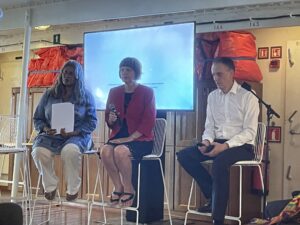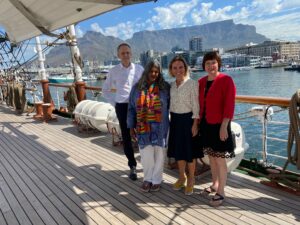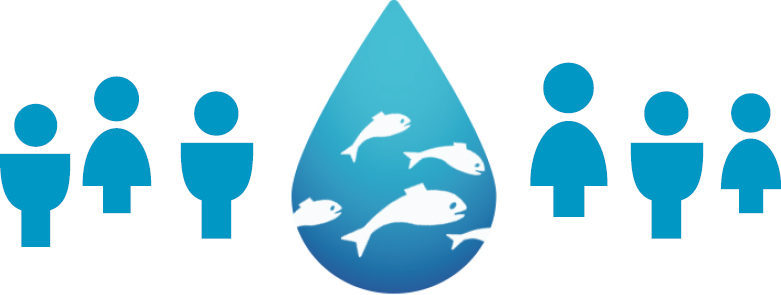African perspectives on aquatic food for food security
African perspectives on aquatic food for food security – One Ocean Expedition seminar in Cape Town

Professor Hettie Schonfeldt from University of Pretoria gave an overview of food and nutrition challenges with emphasis on aquatic food and the situation in South Africa. She noted that global food security is a goal that is within reach if the right policies are implemented. Aquatic food can play an important role in this context. Diets in South Africa on average include low levels of aquatic food. Challenges are found within supply, transportation, storage and related costs, but also in dietary habits and traditions.
Professor Moeniba Isaacs from University of Western Cape discussed the role of Small Scale Fisheries (SSF). She emphasized the unique qualities of SSF in terms of local harvesting, short distance to markets, low emissions as well as social justice aspects. If the resource availability is regulated well, equitable access of nutritious food to poor people can be secured. However, cases show competition with industrial fisheries, other industries including oil and gas as well as the establishment of Marine Protected Areas (MPAs) where artisanal fishers are denied access.
Professor Peter Haugan from Institute of Marine Research (IMR) Norway provided a brief overview of contributions from the Nansen programme to food security and contributions by the High Level Panel for a Sustainable Ocean Economy. The Ocean Panel commissioned expert reports on the future of food from the ocean underpinning its role in the political Transformations Agenda. The Global Action Network for Aquatic Food from the Ocean and Inland Waters and the two UN Decades of Action on Nutrition and Ocean Decade form frameworks for future collaboration.

A lively discussion session covered a broad range of issues including reduction of waste by utilization of the entire fish, the role of aquaculture and new types of feed, and future possibilities for seaweed and shellfish. It was pointed out that traditional ways of preserving fish such as by salting or drying can be a sustainable alternative to refrigeration which is costly and can be difficult to get. While a strong increase in the production of aquatic food will require industrial scale approaches including aquaculture, planning for an equitable ocean economy must be inclusive and in particular consider the roles of small scale fishers including women.
The Norwegian embassy in South Africa, The Norwegian Development Agency (Norad) and IMR hosted the seminar onboard the tallship Statsraad Lehmkuhl on 16 January 2023 during its visit to Cape Town as part of the One Ocean Expedition. Jorun Sigrid Nossum of Norad was the moderator. The introductory presentations are available by contacting Peter.Haugan@hi.no.
